In this #coachbetter episode, Kim talks with Shannon Beckley, Director of Teaching & Learning at Graded Sao Paulo in Brazil. Shannon has a huge range of coaching experience in several different schools and districts around the world, and in this episode, they chat about what makes coaching successful in the various schools she’s worked with, the unique model of coaching and professional learning the team at Graded are currently building, and what Shannon looks for in hiring coaches. For coaches who are looking for different models for professional learning, and how we can more deeply embed coaching into school-wide initiatives, this episode is for you!
Subscribe to #coachbetter via your favorite Podcast Player!
Featured Guest
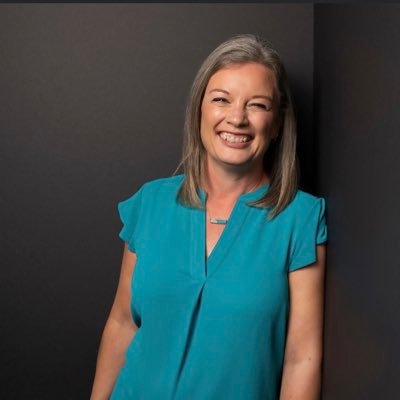
Bonus! Watch the Spotlight Version on YouTube!
SHOW NOTES
Please tell us a little bit about your experience as an educator. What was your journey to become the Director of Teaching and Learning at Graded – The American School of São Paulo?
High School Upperclassman, thought I was going to go right into the workforce. Started tutoring kids in elementary school, ended up going to college, degree in Early Childhood. Ended up becoming a teacher in my school district. Started doing PD work. In 2004, Reading Specialists became Literacy Coaches, hiring TOSAs to support coaches. Started with 15 coaches, working across 14 schools, all Title 1 schools. By year 22, all 28 ES had coaches. By year 7, we had ES Literacy Coaches, MS Math and Teach Coaches, HS Instructional Coaches. My position went to an admin position & found myself coaching across all different levels, coaching coaches, coaching central office admin. All in the Seattle area. Bonnie Campbell Hill was also doing work in the Seattle area, got introduced to international schools through this connection. Did some consulting with them consulting in international schools. Kept doing that since 2004. That led me to try working in international schools full-time. Graded is my first international school.
What was the transition like?
Easy, having connections helped, good time to transition based on my son’s age.
In your experience with schools around the world, what makes a coaching program successful? What makes coaching work?
Clear expectations, clear roles & responsibilities, defined processes, strong avenues for communication, development of a common language.
Across all of the settings that I’ve worked, 2 constants:
1: mindset “what did you learn? What did you notice about your students? Your colleagues?” Leads to a culture of learning for all.
2: An understanding of a model of change, trying to achieve some kind of measure of change, which wraps in all the strategic things and the emotions and human part of the work. Doesn’t matter which model, but you need one, so there is a common language to help you reflect.
Having a common structure and common language is a tool for our own resilience. We can go back to it and name it. Not only are we using it with our colleagues, but we’re applying it to ourselves. It’s good for the system, but it’s really good on the personal individual level too.
What does coaching look like at Graded? What structures have you put into place at Graded to make coaching successful?
It’s been a journey, lots of varying training, but nothing significant has stuck.
Current focus at school: deep, enduring, transferable learning. Our graduates are self-reflective, self-regulated, self-directed learners that have metacognitive skills and can transfer their learning across disciplines. Studying the science of learning.
4 coaches in TL & 2 curriculum coordinators plus library staff. Coaches are charged with leading the work and the learning around the science of learning. Coaches are called Deeper Learning Coaches. In Search of Deeper Learning: intersection of mastery, identity and creativity. Coaches are trying to bring that to life.
10 Week Intensive: Foundations of Deeper Learning: 20 teachers going through the journey. 3 rapid mini-cycles of learning.
- 1: 3 days of workshop style learning (set an inquiry goal), then 2 weeks of coaching in their classroom applying their learning.
- 2: 3 more days of learning (CFG protocols), then 2 weeks of coaching.
- 3: 2 days (application of learning). Coaches work with them through the 10 weeks on that goal (centered on student learning need & inherently beg teacher change, what’s going to be the evidence of student success?) Last day is an Exhibition of what they’ve learned, using Journey Maps, leadership & school board are invited. Next step is to iterate & improve, and what are the supports we’re going to offer systemically post-pilot.
Through the inquiry model we focus on Student-Centered Coaching. With the workshops & Critical Friends Group, we pull from Jim Knight and a dialogical approach. Skills & Strategies of Cognitive Coaching to move back and forth between stances, ask open-ended questions. Very responsive.
Getting Started as a Coach
The move from a classroom position to a coaching role can be tricky because there are so many challenging elements to being a coach that are not part of classroom teaching.
If you want to know what to expect in your coaching role – grab our brand new freebie full of real-life coaching scenarios that have surprised me, or the coaches I work with at some point in their career. These scenarios are all real-life stories from either my own professional experience or the stories I hear from clients on a daily basis.
These scenarios will help you recognize how ready you are for your new role! Grab the freebie today & see if you’re ready to be an instructional coach!
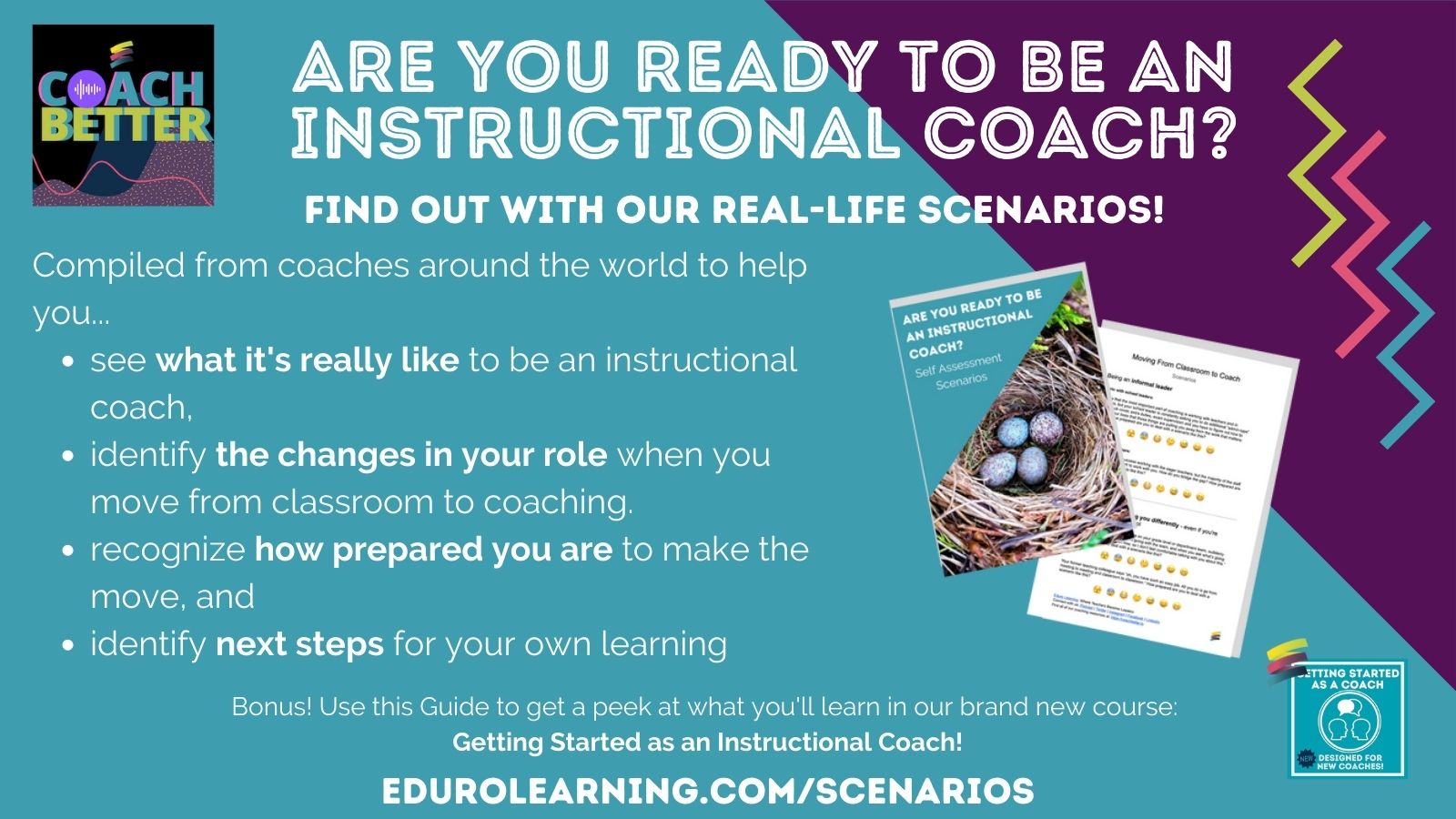
Show Notes continued…
How did the school get so focused on this?
Arrived in 2016. Renewing / redeveloping the strategic plan. In 2019, hosted a Think Tank, invited several external partners with all community stakeholders for 2-3 days to look at strategic plan and think about how we could structure and accomplish all that we wanted to accomplish. Goal was to find focus and let go of some things.
Case Study Report: A School’s Commitment to Deeper Learning
Made a commitment to allocate human resources. All internal hires, first-semester last year. Started to build PD with coaches while they were still in their teaching roles. Being online for the first semester this year was a gift & a luxury to focus on building the team & refining the work.
What did you learn?
We set out to design a course around deeper learning, but the result is changing culture and mindsets. The focus on identity, teachers are talking about the ways their teacher identity has changed, talking about the ways their practice has changed. Culture in the classroom is changing. The kinds of conversations they have with each other, and the kinds they want to have. How do we structure time, which things make it onto agendas, which things become part of our agenda. We’re learning a lot about identity and equity in our classrooms. When we do that, those kinds of levels of purpose, mastery, and engagement supports deeper learning.
Polarity: Independence to Interdependence: Autonomy is really important, but in a system, interdependence is really important. Within that where are the things that are stable and tight, and where is there room for flexibility?
4 Different Dimensions of Scale (Cynthia Coburn): Depth, Sustainability, Spread & Ownership: understanding the content well, having it last over time, increasing numbers, increasing internal motivation. It’s not just about having Deeper Learning evident in our classrooms, what are the HR practices and Business Office practices that support that?
Finding focus has to include the courage to say no. We need to know what we want to say yes to, so we can know what we can say no to. Name the things we’re going to let go of.
When you’re thinking about hiring coaches, what are you looking for? What stands out to you?
Someone who will come in, be an active listener, be reflective, who’s willing to wrestle with change. Learning Lab has 3 norms: be present (engage, listen, question) be open (minded, hearted, open to feedback) be wiling to unlearn, relearn, rethink, and reimagine.
One of the things I look for is the disposition, being a learner themselves. 10 Roles of a School-Based Coach. Hiring based on the roles we want coaches to fulfill in the school.
Pie graph activity before hiring to prioritize which roles the coaches can actually do based on capacity.
You have an amazing professional development program at Graded. Can you tell us more about it? What makes you excited about this process and structure? How do you see it impacting teacher and student learning?
Continuing to iterate & prototype. In the first semester, the team did a round of empathy interviews with teachers: tell us about a time when you participated in a professional learning experience that prompted you to make a change in your teaching.
Ended up with a set of common principles: model, purposeful & focused (tied to strategic plan), create agency and ownership for teachers (multiple pathways), collaborative (social metacognition), accessible (release time), evidence-based (grounded in research), combine internal and external expertise.
Monthly reflective time & PD learning days. Developing pathways for intermediate and advanced levels, looking at independent study, book study, external options. Next step is D School is coming in to facilitate a session to revise the prototype & build upon it. How are we going to find our focus?
Graded Sao Paolo: Learning Lab on social media @learninglab2 (Twitter) and @grlearninglab (Instagram)
Ready to Change Culture & Mindsets Through Coaching?
And if you’re ready to dig deeper into being more intentional in your coaching practice – or if you’re new to instructional coaching and you’re curious about getting started, join us for one of our courses for coaches!
One of the things we’re most proud of here at Eduro is that there’s no one-size-fits-all learning – you always have choice and voice in how you learn with us. Today’s video highlights one of the key themes that you’ll find in all of our courses for coaches, and if you’re curious to take your learning deeper, we have two great options for you.
New Coaches:
If you’re just getting started as a coach, and you want to learn how to make these mindset and skillset shifts, watch our New to Coaching Workshop, which will also tell you all about our brand new course, Getting Started as a Coach, which is open for registration RIGHT now – so don’t wait if this sounds like it’s right for you! This course is specifically designed for classroom teachers that are moving into a coaching role. It’s focused on exactly the skillset & mindset shifts you need to make to be successful as an instructional Coach.
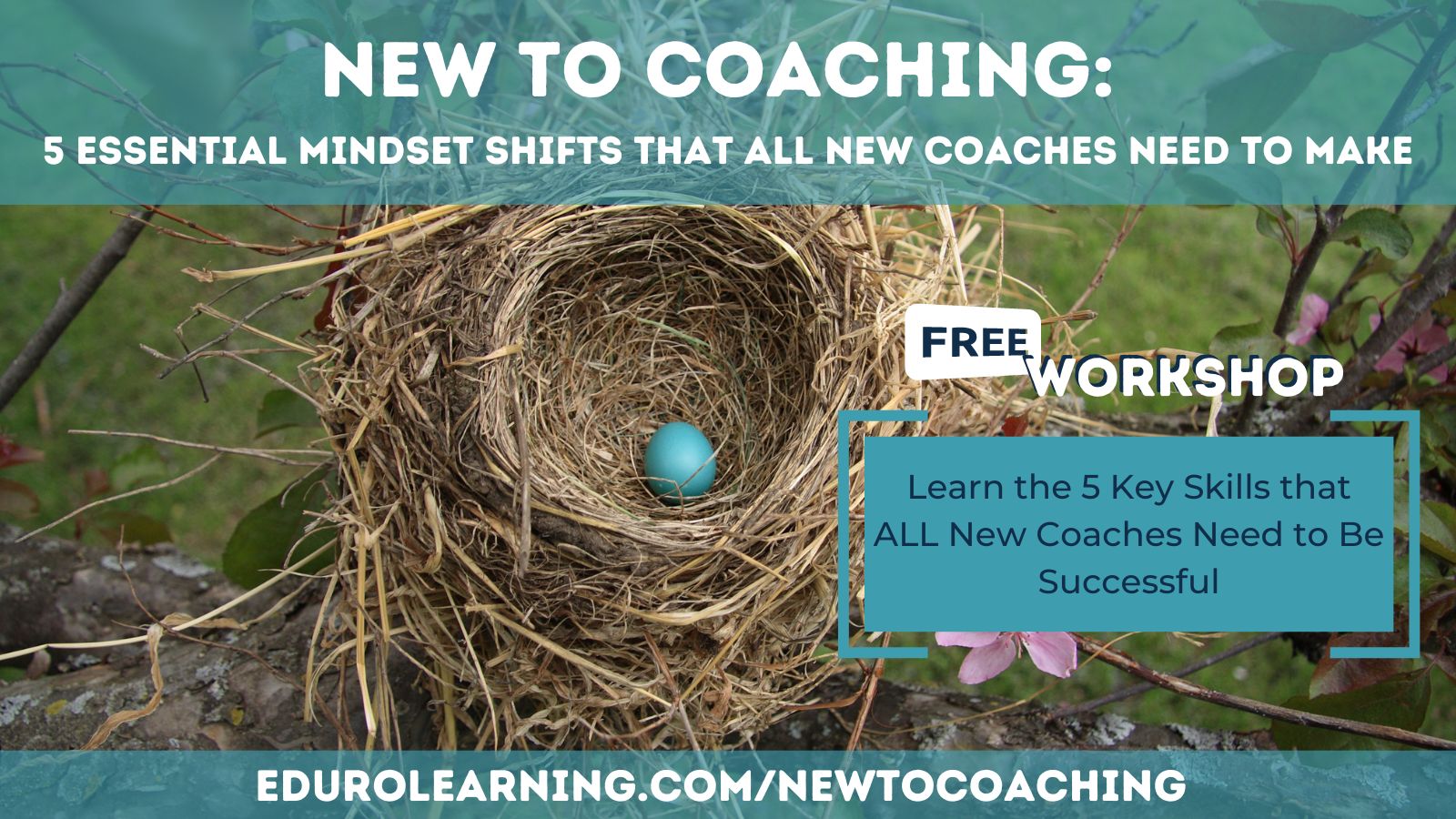
Experienced Coaches:
If you’re already a coach & you want to think about being more intentional & strategic in your practice, watch our workshop on the Thrive Model for Coaching Success which will help you evaluate your program to see where you may have room to grow – and help you decide if our year-long mentorship and certification program, The Coach, is right for you, right now
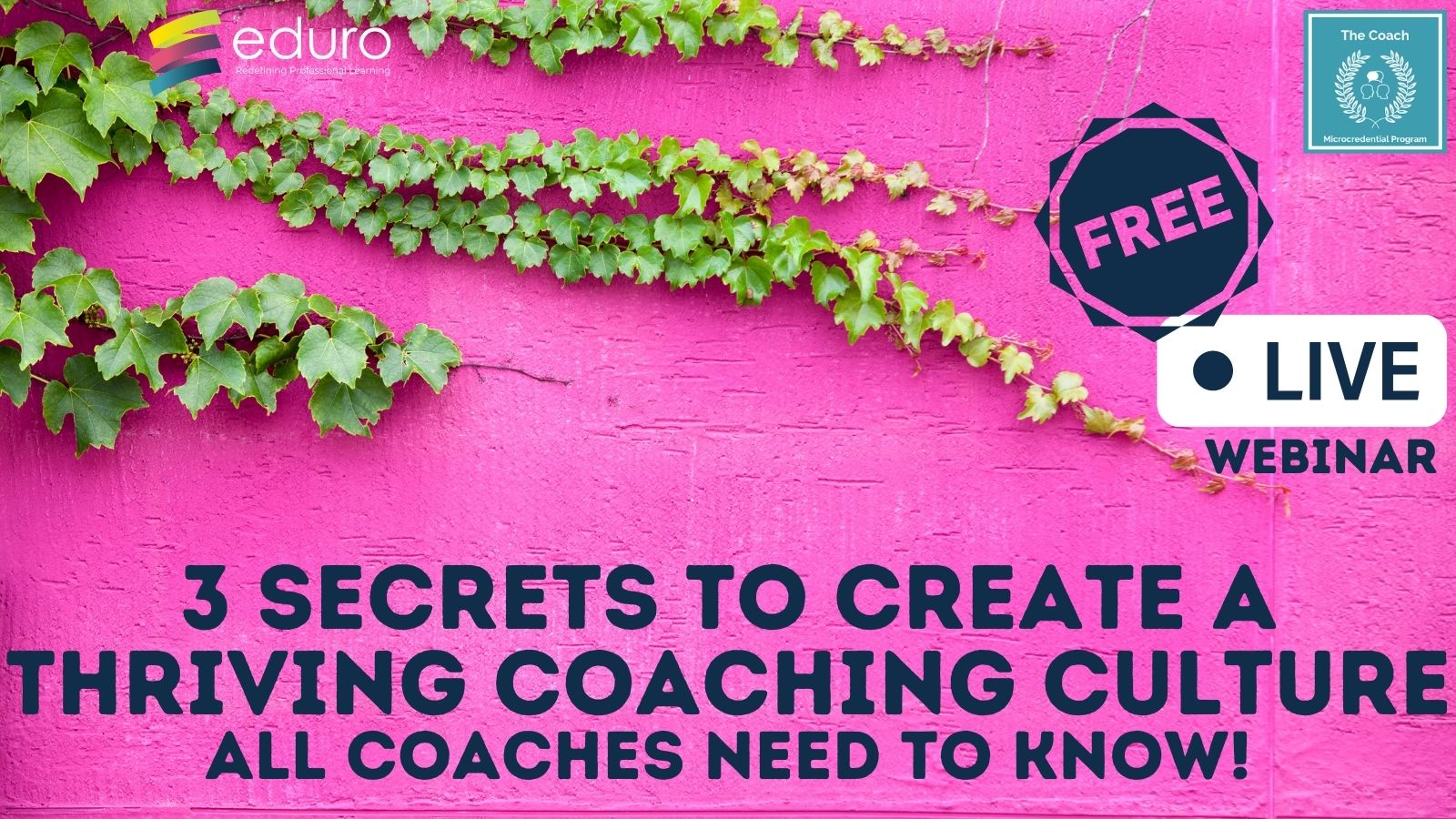
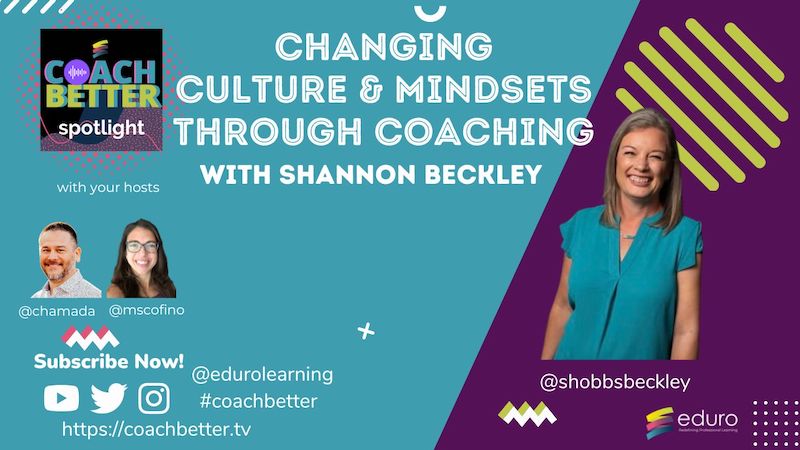




Recent Comments